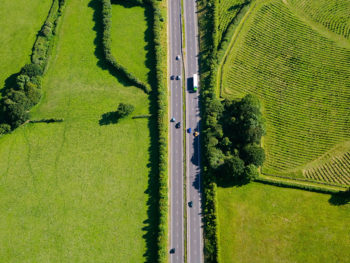Stringent regulation needed to counter remote driving tech threats, says review
UK laws governing remote driving technology must be radically overhauled to prevent safety risks, including potential threats from terrorists, according to a review by the Law Commission.

The review concludes that remote driving on roads and public places should only be allowed if companies obtain special permissions
Such technology – which enables a person to drive a vehicle from a remote location – has seen rapid advancements in recent years and is already used in controlled environments, such as warehouses and farms.
But a much-wider rollout is on the way, including for delivering rental cars to customers’ doors and for trials of self-driving vehicles, and it’s led to concerns for safety.
In a new paper, the Law Commission says remote driving – where the driver does not have direct line of sight of the vehicle and may be in an operations centre many miles away – could bring significant safety challenges such as establishing reliable connectivity, driver situational awareness and a possible sense of “detachment” from the physical world.
But it also warns of cybersecurity concerns – such as the threat of a terrorist seizing control of a vehicle.
In its review – commissioned by the Department for Transport (DfT) and the Centre for Connected and Autonomous Vehicles (CCAV) – the Commission calls for both short-term changes to the law to respond to emerging safety concerns, as well as a new regulatory regime to govern remote driving on roads in the longer term.
It also concludes that remote driving on roads and public places should only be allowed if companies obtain special permissions.
The paper also explores the issue of liability in the event of an accident with remotely driven vehicles – and states that all victims should be protected by automatic compensation from insurers.
The advice set out in the paper is largely modelled on the Commission’s 2022 recommendations on autonomous vehicles, which the Government has used as part of its plans to roll out self-driving cars by 2025.
Nicholas Paines KC, Public Law Commissioner, said: “Remote driving is an exciting technology, but before we see remotely operated cars on UK roads, we must address safety concerns through strong regulation.”
He continued: “Regulations must respond to other fundamental concerns around security threats and liability in the event of an accident. Our advice paper sets out a roadmap for how the Government can address these problems, whilst also encouraging companies to innovate.”
Transport Minister Jesse Norman said remote driving has huge potential to provide new services and safety features for road vehicles, but added that safety concerns needed to be balanced.
He added: “The Department will carefully consider the Law Commission’s recommendations.”
Commenting on the Law Commission review, Ben Pepper, senior associate at specialist claims solicitors Bolt Burdon Kemp, said: “Before remote driving becomes even more widely used, legislation needs to be implemented to keep up with the technological advancements. Minimum safety standards must be specified and adhered to by manufacturers, remote drivers and their employers. I agree with the Law Commission’s proposals to ban remote driving from abroad until international agreements on enforcement are implemented.
“I am pleased to see the Law Commission’s conclusion that victims of road traffic collisions involving remote drivers should be entitled to no-fault compensation on a similar basis to the insurance provisions for automated vehicles. Compensation should be recoverable from the motor insurer. This is vital in ensuring that injured people don’t get caught up in complex product liability claims against manufacturers or software developers, which would be costly and time-consuming. Access to the compensation for injured people following remote driving collisions must be given priority.”














